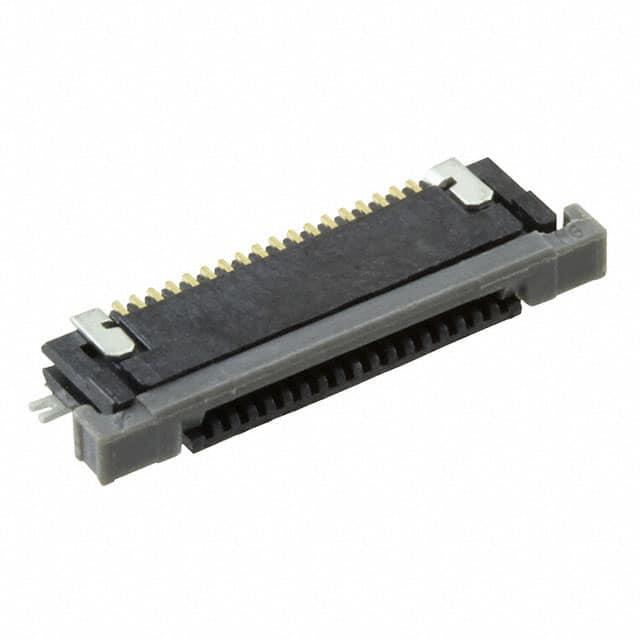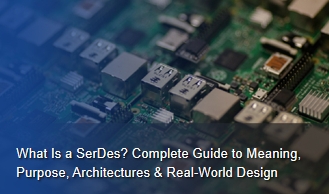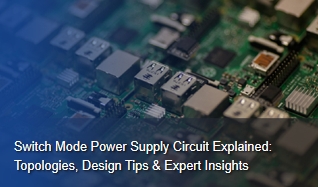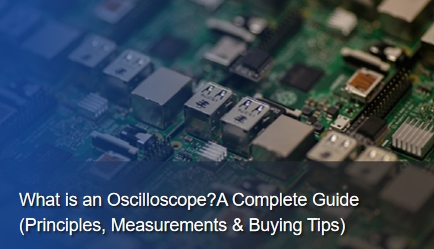The Role of FFC/FPC Connectors in Compact and Flexible Electronic Designs

1. Introduction to FFC/FPC Connectors
Flexible Flat Cable (FFC) and Flexible Printed Circuit (FPC) connectors are critical components in modern electronics, particularly where compact, lightweight, and flexible designs are required. FFC connectors are flat, flexible cables with multiple conductors arranged in parallel, while FPC connectors connect circuits embedded in flexible films. These connectors are essential in today’s compact electronic devices due to their ability to connect components without adding bulk or rigidity.
2. Types of FFC/FPC Connectors
There are several types of FFC/FPC connectors, each designed to cater to specific application needs:ZIF (Zero Insertion Force) Connectors: These connectors require minimal force to insert or remove cables, making them ideal for delicate and high-density applications.LIF (Low Insertion Force) Connectors: Similar to ZIF connectors but require slightly more force, making them suitable for applications needing moderate durability.Latch-Type Connectors: These connectors use a latch to secure the cable in place, offering a more robust solution for environments where connectors may face movement or vibration.
Each type serves different applications, balancing between ease of use, stability, and connection strength.
3. Key Features and Specifications
When selecting an FFC/fpc connector, several key features and specifications must be considered:Contact Density: High-density connectors allow for more conductors within the same space, which is crucial for compact devices.Pin Count: The number of pins can vary based on the application, ranging from a few to several dozen.Operating Temperature Range: Reliable connectors must perform well across the expected temperature range without degradation.Durability: FFC/FPC connectors are designed to endure repetitive flexing, making them reliable in dynamic environments.
Other important factors include pitch size (spacing between contacts), thickness of the cable, and contact force, all of which affect the connector’s suitability for different designs.
4. Applications of FFC/FPC Connectors
FFC/FPC connectors are widely used in various industries due to their adaptability:Consumer Electronics: These connectors are critical in smartphones, tablets, and wearable devices where space is limited and flexible connectivity is crucial.Automotive: In vehicles, FFC/FPC connectors are used in infotainment systems, navigation displays, and sensors.Medical Devices: The compact size and flexibility of these connectors make them ideal for medical imaging devices and portable diagnostic equipment.
Industrial Equipment: FFC/FPC connectors are used in robotics, control systems, and high-precision machinery.
5. Advantages of FFC/FPC Connectors
The advantages of FFC/FPC connectors in compact and flexible designs are significant:Space-Saving: These connectors reduce the need for bulky wiring, enabling more compact and lightweight designs.Flexibility: The flexibility allows for movement, bending, and folding, making them perfect for applications like folding smartphones and wearable devices.High-Density Connections: FFC/FPC connectors can support multiple connections in a small area, making them suitable for high-complexity circuits.
Reduced Weight: With their lightweight design, these connectors are ideal for applications where every gram counts, such as drones or portable devices.
6. Design Considerations for FFC/FPC Connectors
When integrating FFC/FPC connectors into a design, consider the following:Electrical Characteristics: Ensure the connector’s resistance, capacitance, and impedance match the circuit’s requirements.Mechanical Strength: Assess the connector’s ability to withstand bending and movement, especially in dynamic applications.Environmental Conditions: Consider factors like humidity, temperature, and potential exposure to dust or chemicals, which may affect performance.
Signal Integrity: Proper grounding and shielding can help maintain signal integrity in high-frequency or high-speed applications.
7. Challenges in FFC/FPC Connector Integration
Despite their advantages, there are challenges in using FFC/FPC connectors:Vibration and Wear: Repeated flexing or exposure to vibrations can degrade connection quality over time.Contact Reliability: Ensuring consistent and reliable contact in high-density connectors is crucial, especially in harsh environments.Thermal Expansion: Differences in thermal expansion between connected materials can cause stress, impacting long-term reliability.
Addressing these challenges requires careful design, component selection, and sometimes additional protective measures, such as reinforcement or shielding.
8. Innovations and Trends in FFC/FPC Connector Technology
Recent advancements are pushing FFC/FPC connectors further:Miniaturization: As electronic devices become smaller, connectors are being designed with even tighter pitch sizes and thinner profiles.Dual-Sided Contact: Connectors with contacts on both sides of the cable improve performance and reliability in tight spaces.Enhanced Durability: New materials and designs are extending the lifespan of connectors, even under challenging conditions.
Looking forward, the rise of wearable tech, foldable screens, and more compact IoT devices will continue driving innovation in FFC/FPC connectors.
9. Comparison of FFC/FPC Connectors with Other Connector Types
FFC/FPC connectors offer unique benefits compared to traditional connectors:Versus Rigid Cable Connectors: FFC/FPC connectors are more flexible and take up less space, but may have lower mechanical robustness.Versus Pin Headers: While pin headers are robust and easy to connect, they are less suitable for applications where space and flexibility are priorities.
The choice of connector type depends on the specific needs of the application, such as space constraints, mechanical stress, and environmental conditions.
10. Selecting the Right FFC/FPC Connector for Your Application
Choosing the correct FFC/FPC connector involves evaluating:Application Requirements: Match the connector’s specifications to your design needs, considering factors like pitch, thickness, and pin count.Environmental Conditions: Ensure the connector can withstand the operating environment, including temperature extremes and potential exposure to moisture or chemicals.
Cost Considerations: Balance performance with cost, especially in high-volume applications where small savings can add up.
11. Recommended Brands and Suppliers
When selecting FFC/FPC connectors for your design, choosing the right brand and supplier is critical to ensuring quality, reliability, and performance. Several leading brands in the industry have established themselves as top providers of high-quality FFC/FPC connectors that meet the rigorous demands of modern electronic applications. Below is a more detailed exploration of some key brands and a trusted supplier.1. AMPHENOL:Amphenol is a globally recognized leader in interconnect technology, offering a wide range of FFC/FPC connectors known for their durability and precision. Their connectors are designed to support high-density, high-speed applications across industries such as telecommunications, automotive, and consumer electronics. Amphenol’s FFC/FPC connectors are valued for their robust contact designs, which ensure reliable connections even in harsh environments.Key Features:High contact reliabilityWide range of pitch sizes and configurationsIndustry-standard and customizable options
2. Hirose Electric:Hirose Electric is renowned for its innovative and compact interconnect solutions. They are particularly known for their extensive lineup of ZIF (Zero Insertion Force) and LIF (Low Insertion Force) FFC/FPC connectors, which are designed to provide secure and stable connections while minimizing the risk of damage during insertion or removal. Hirose’s connectors are commonly used in mobile devices, medical instruments, and industrial equipment.Key Features:Precision engineering for high-density applicationsVariety of locking mechanisms for secure connectionsAdvanced materials for improved longevity and performance
3. MOLEX:Molex is another industry giant with a broad portfolio of FFC/FPC connectors. Molex connectors are frequently found in applications requiring compact designs with reliable performance, such as in automotive infotainment systems, consumer electronics, and data communications. Molex’s expertise in miniaturization and high-speed interconnects makes them a go-to choice for demanding designs.Key Features:High durability for repetitive mating cyclesVersatile range of connectors for different voltage and current ratingsSupport for both standard and custom design requirements
4. Trusted Supplier: unikeyic ElectronicsWhile selecting top brands is essential, partnering with a reliable supplier is equally important to ensure timely delivery, competitive pricing, and ongoing technical support. Unikeyic Electronics is a trusted distributor specializing in electronic components, including FFC/FPC connectors from leading brands like Amphenol, Hirose Electric, and Molex.
What sets Unikeyic Electronics apart is its commitment to providing a comprehensive selection of components, making it easier for design engineers and procurement teams to source everything they need from one place. Whether you’re looking for connectors for consumer electronics, industrial machinery, or specialized applications, Unikeyic Electronics offers tailored solutions to meet diverse requirements.
12. FFC/FPC Connectors FAQ
Q: What are FFC connectors commonly used for?A: FFC connectors are typically used in applications like LCD displays, printers, and other compact electronic devices where flexibility and space-saving are crucial.
Q: How do I choose the right pitch size for my connector?A: The pitch size should be chosen based on the density of your circuit and the physical space available in your design. Smaller pitches allow for more compact connections.
Q: Are FFC and FPC connectors interchangeable?A: While they serve similar purposes, FFC and FPC connectors are designed for specific types of flexible cables, and compatibility depends on the specific connector and application.
Q: Can FFC/FPC connectors handle high-speed signals?
A: Yes, but maintaining signal integrity in high-speed applications requires careful design, including appropriate grounding and shielding strategies.
Conclusion
FFC/FPC connectors are pivotal in enabling compact, flexible, and reliable electronic designs. Their adaptability and performance make them ideal for a wide range of applications, from consumer electronics to industrial equipment. As technology continues to advance, these connectors will play an increasingly critical role in the next generation of compact and flexible devices.






















